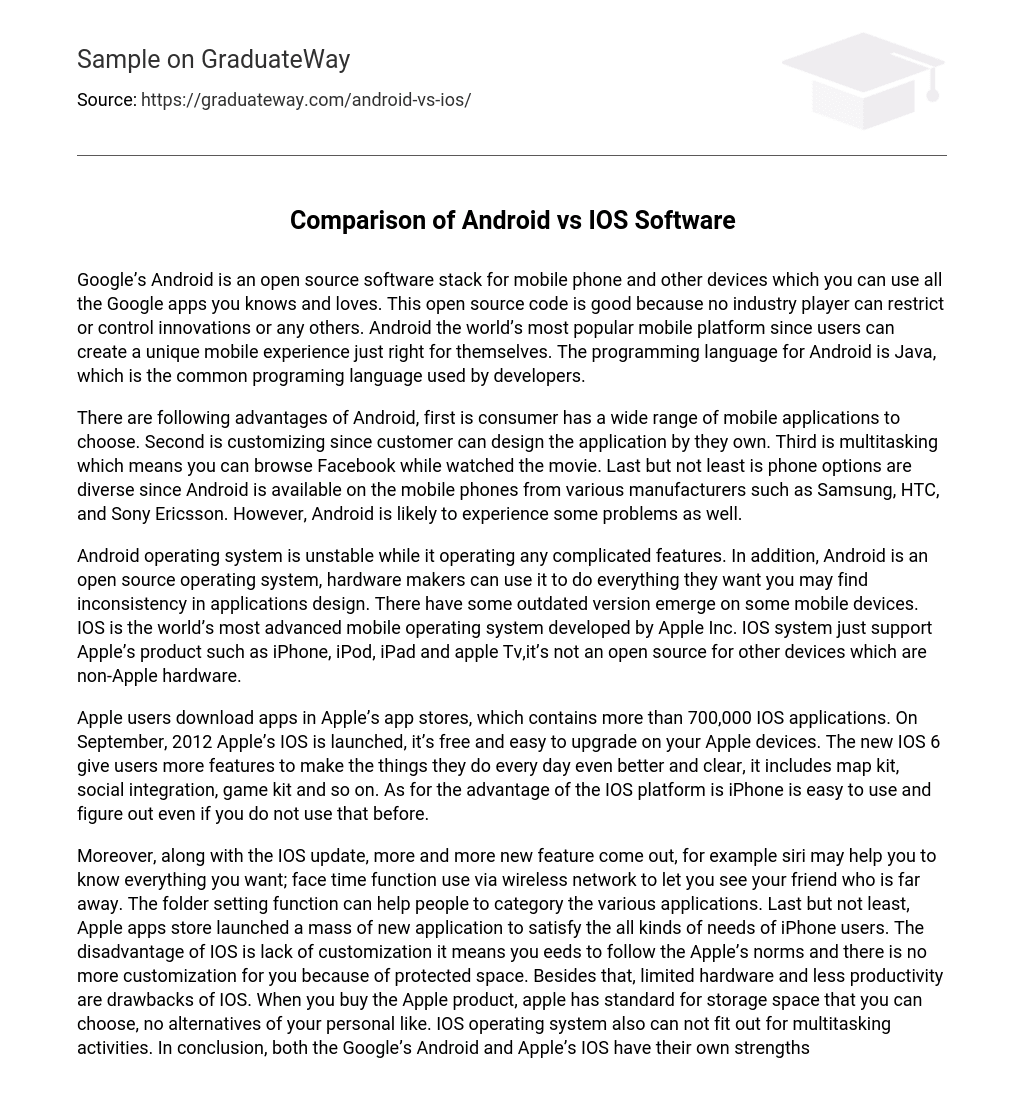Google’s Android is a software stack for mobile phones and other devices that is open source, allowing users to access Google apps. The unique code of Android prevents any one company from restricting or dominating innovation. It is currently the dominant global mobile platform, offering users the ability to personalize their mobile experience. Android applications are created using Java, a widely used programming language.
Despite facing certain challenges, Android provides numerous benefits. These include a wide variety of mobile applications, the ability to personalize apps according to user preferences, multitasking capabilities for simultaneous social media browsing and movie watching, as well as diverse phone options from manufacturers such as Samsung, HTC, and Sony Ericsson.
The Android operating system is infamous for its lack of stability when handling complex features and its wide array of customization options for hardware manufacturers. This extensive customization often results in discrepancies in the design of applications and outdated versions of Android on certain devices. In contrast, Apple Inc. has developed IOS, which is recognized as the most advanced mobile operating system globally. Unlike Android, IOS is exclusively accessible on Apple products such as iPhone, iPod, iPad, and Apple TV and cannot be utilized on non-Apple hardware.
Apple’s app stores offer over 700,000 IOS applications to its users. In September 2012, Apple introduced the free and user-friendly IOS 6 platform for its devices. This platform includes various enhancements like map kit, social integration, game kit, and other features that improve daily activities. iPhones are renowned for their intuitive and user-friendly design, even for beginners.
Moreover, alongside the IOS update, numerous new features emerge. For instance, Siri can assist you in finding information you desire and FaceTime lets you connect with faraway friends via a wireless network. The folder setting function aids in categorizing applications. Furthermore, the Apple App Store offers a wide range of applications to meet the diverse needs of iPhone users. However, IOS lacks customization as users must adhere to Apple’s norms and have limited options for personalization due to the protected space. Additionally, limited hardware and lower productivity are downsides of IOS. When purchasing an Apple product, storage space options are predetermined without alternatives for personal preferences. Furthermore, IOS does not accommodate multitasking activities. In summary, both Google’s Android and Apple’s IOS have their own strengths and weaknesses. As competitors, they can leverage their respective advantages during competition.





